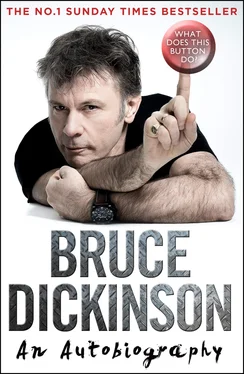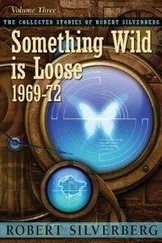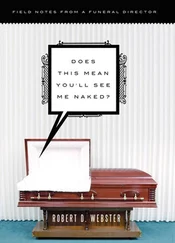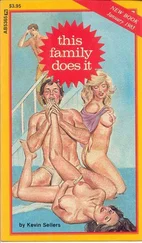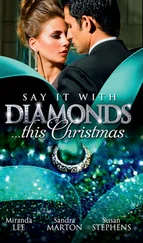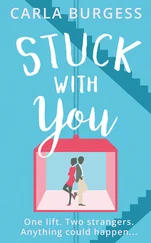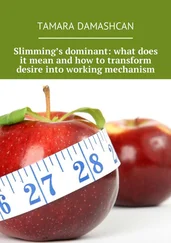1 ...6 7 8 10 11 12 ...18 In the machine shop I broke windows with the chuck key, using the rotary action of the lathe as a catapult. Finally, by an act of sheer mechanical stupidity, I destroyed a vertical milling machine. Had I been parachuted in to a Nazi factory, I could not have done a better job at sabotage. I wish I could say it was deliberate. As the machine ripped itself in half, the drive shaft stripping its thread, I stood and watched as it vibrated itself to pieces. It was the master in charge I felt sorry for. He was actually crying as he switched it off.
‘Oh, no,’ he sighed. ‘You have broken the machine.’
The only bit about the electronics shop I liked was the smell of the circuit board. I carried it around in a plastic case with various resistors rattling around. I don’t recall what the point of it was, possibly an oscillator.
Disinterested, disgraced and dangerous, I entered the last iteration of my workshop sojourn at Oundle, and unexpectedly hit the jackpot when I discovered an inspirational teacher who knew a bit about metal.
John Worsley was calm and tidy, and wore such a large pair of glasses that it seemed impossible to imagine that he wasn’t interested in you. The moment he picked up a piece of metal, I noticed his fingers. They were thin and nimble, and they floated across the surface of the billet of steel as if he was imbuing it with some otherworldly quality. John would always turn up to classes on his bicycle – racing handlebars, cycle clips on the bottom of his trousers. He had a curious gait, as if one side of him was a sailor and the other had been employed in a previous incarnation as one leg of a tarantula. One of his favourite words was ‘plangent’, and it was an odd, almost archaic-sounding expression. John Worsley was like a hybrid between a bicycle repairman and Gandalf.
Metalworking covered wrought iron, forging, silversmithing and jewellery, plus welding and associated skills. Our project was to make a nickel-silver bracelet, which I quite enjoyed and was rather proud of. When I brought it home, Dad regarded it with deep suspicion.
John Worsley had a plan to get our attention. He thrust a shaft of steel into a glowing brazier and sparks showered forth. He pulled it out, still red hot, placed it on an anvil and started to beat out the shape of what I immediately realised was a sword. He quenched the metal with a satisfying hiss in a bucket of water, and thrust it back in the fire. Without saying a word, he produced a leather blanket and dramatically unfurled it to reveal a replica of Excalibur. The crossbar of the hilt was leather-covered, but the blade, broad and gleaming, was what entranced me.
‘I could teach you all to make this, if you want,’ he stated, rolling the weapon over and over in his palm. He paused for effect. ‘And I could teach you how to use it, of course.’
‘Sir? What, you mean … sword fighting?’
The reason John Worsley walked funny was because he had been a fencing teacher for most of his life. On arrival at a posh public school, as a working-class northerner, he seized his chance. My hand was up right away. I signed up. I would learn how to fence. It would change my life.
My drama teacher also had a profound effect on me. John Campbell was one of those rare but essential teachers who give you permission to dream.
Drama, as opposed to music, was another line of escape, and I was in several productions: Macbeth , Hadrian VII , The Royal Hunt of the Sun and some local inhouse plays that were usually awful West End farces.
In Macbeth I was a witch, murderer and various messengers, spending much of my time under a gigantic polystyrene skull encased in toilet paper. Downgraded to acolyte in Hadrian VII , I stepped up a gear as the mercenary in The Royal Hunt of the Sun and oily manservant in According to the Evidence , a play so silly I was amazed that Samuel French kept it in stock.
Nevertheless, the roar of the greasepaint and the smell of the crowd were taking their toll on my subconscious. The germ of a philosophy started to take root. The idea that it didn’t matter what it was that you engaged in, as long as you respected its nature and attempted some measure of harmony with the universe.
It wasn’t just the senior boys who kicked you around. You could be legally beaten up by teachers. Corporal punishment was common. It ranged from slippers across the backside by individual teachers to more formal floggings with a cane or birch. Opinions varied about the efficacy of a beating. The event was usually administered during the evening, with the unfortunate recipient in his pyjamas, after lights out. This was to ensure maximum psychological anxiety and maximum physical discomfort, as six strokes through cotton pyjamas was almost certain to draw blood. The now thankfully meaningless expression ‘books down the trousers’ was intended to convey a situation where, in anticipation of physical sanction, a geography notebook might shield the buttocks from damage.
There was general agreement that fives or squash players were the most devastating floggers on account of their fearsome backhand. Golfers came a close second. A great deal of discussion in dorm rooms revolved around angles, velocity and acceleration. After a beating, the victim usually stood on top of a chest of drawers and dropped his pants to invite comments by flashlight.
‘Not bad grouping.’
‘Ooh, stroke number four a bit low.’
‘He doesn’t like you much, does he?’
My housemaster had a variety of implements, ranging in length, flexibility and thickness according to the severity of the transgression. Four to six strokes were delivered, and his favourite armchair became the flogging stool, with the cushion removed and the boy exhorted to bend over and touch the bottom of the chair. There was a fetishistic streak to all this. Many of his beatings were administered while he was dressed in his rowing kit.
There are possibly people who still regard this sort of thing as character building. I am not one of them.
I began to think of school as a prison camp, and my duty was to disrupt, subvert and/or escape. But, of course, there was no escape. I felt I should make some kind of statement. I decided to deliver two tons of horseshit to my housemaster. Just one of those spur-of-the-moment ideas that comes with no logic in tow, but a great deal of emotional momentum.
I was wandering through town, considering the colour scheme for my squadron of Hannibal war elephants, which required painting before being blooded during the wargames society Roman stand-off. Pottering past the post office, I saw a postcard in the window, which read fatefully: ‘Manure delivered to your door.’
I went to the phone box and dialled.
‘Hello, do you deliver? Excellent. I’d like two tons, please … Yes, drop it in front of my house … The address? Sidney House, Oundle School. Thank you so much.’
That evening, the house gathered for supper. The housemaster stood up, sucking air through his teeth in lieu of the pipe he perennially puffed away at.
‘This afternoon,’ he said, ‘some wag thought it amusing to deliver two tons of shit onto my front doorstep. Unless the person owns up there will be no electricity for kettles or stereos in the house.’
Standard tactics for a low-grade despot. The stereo was an essential part of student existence. There were no CDs, and cassette recorders were in their infancy. Chronic audiophiles with rich daddies had reel-to-reel studio recorders and busily spliced tapes together to make compilations from their vinyl collections. It was only in your third year at Oundle that you were allocated to a study, a room not quite of your own but which you shared with one or two others. Decoration was possible and, inevitably, a music system was essential. By strolling past open study doors on a Sunday afternoon it was possible to sample most of the premier rock bands of the sixties and seventies. To cut off this lifeline to sanity and escape from the Oundlian Alcatraz, if only in spirit, was a dark and cruel punishment.
Читать дальше
